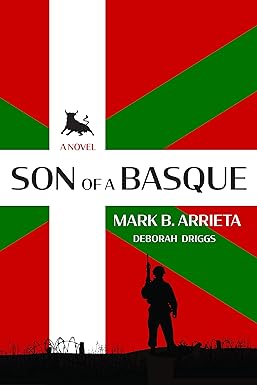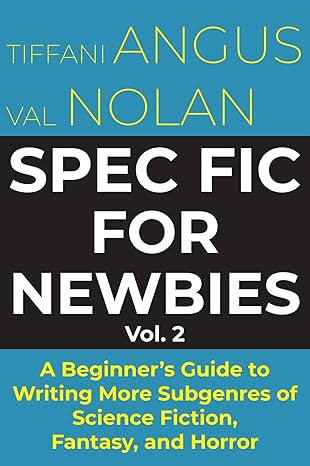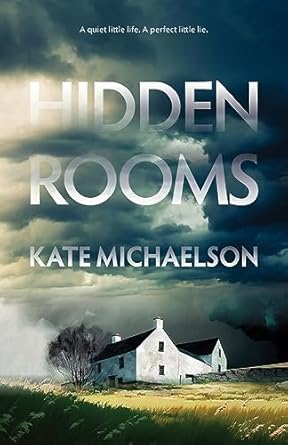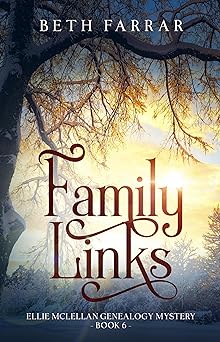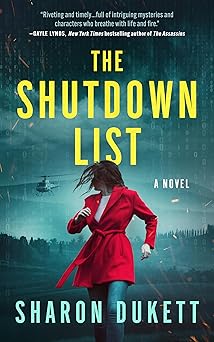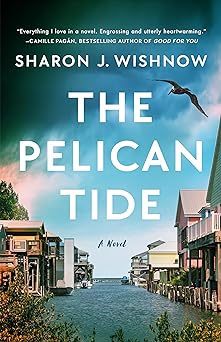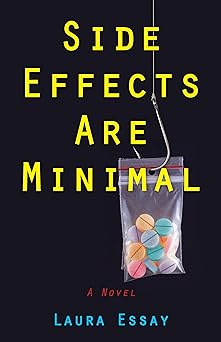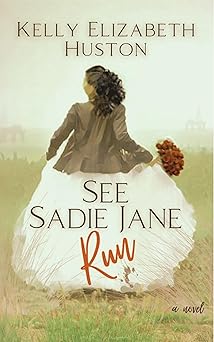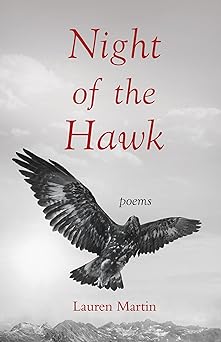Writing Stories with Larger Meanings and Goals
By Sharon J. Wishnow
On August 29, 2021 Hurricane Ida, a massive 150 mph category 4 storm slammed into Grand isle, Louisiana.
Twelve hundred miles north in my home in Northern Virginia, I wept.
Stories that move us and remain with us are the ones where we feel an emotional connection to the characters and their story journey. They are also the ones that find and audience through word of mouth.
For the previous two and a half years, I had been researching and writing about the Deepwater Horizon oil spill and the devastation it caused on the environment and the community in Grand Isle. Louisiana. My debut novel, The Pelican Tide is a fact-driven fictional account of the 2010 oil spill and how the Grand Isle community pulled together to rise above the spill and save one very important pelican.
On that August day, eleven years after the worst oil spill in U.S. history, Grand Isle had sustained 100% property damage. Homes had been swept off their foundations and out to sea. I worried that this place would only now exist in fiction.
Over the course of my extensive research, I had become attached to Grand Isle like a chick that imprints on the first moving object it sees.
As the news came in over the next few days, and the remnants of Ida fell on my head in Virginia, I was electrified with the need to do something, anything. I wanted my novel to help support the island.
Write More than a Story
No matter what you are writing, whether it’s a rom-com, domestic suspense, or any genre, your writing and your stories can have a deeper impact for readers.
Nine months after the hurricane, the Grand Isle Garden Club was raising funds to replant native vegetation. I donated but was unable to speak with anyone. It took several more months before a more organized Restore Grand Isle movement would emerge. I made contact and introduced myself and that I had written a book about the oil spill. How could I help?
In the time since my book launched, I have written articles, spoken to groups, and added direct information on my website to support the Restore Grand Isle project. This has raised awareness to the group and (bonus!) they in turn have supported me with my launch.
Find Your Issue
When considering how to write a story that can support a cause or raise awareness, look to your characters.
- Do you have characters with an illness, issue, or “wound” that he or she is grappling with in the story? Not all issues are medical. Consider financial pressures such as paying off student loans, job loss, or juggling daycare to promote conversations.
- Does your story take place in a setting that has unique features? High crime, urbanization, water shortages, the beach.
- Can you add a secondary plot line that supports one of your passion issues. Building a dog park, planting trees, opening a homeless shelter for runaways, creating a community garden, providing books to children.
Research Your Facts
One key to successful issue building is to understand all sides of the issue. The Pelican Tide discusses the oil industry and how both BP and the federal government failed the people and wildlife along the Gulf Coast. I felt impassioned to write about the spill and the death of millions of birds, sea creatures, and the destruction of the ecology. However, I feared my standing on a soapbox would come across as preachy.
The oil industry in Louisiana and along the Gulf Coast provides high paying jobs, infrastructure, and a living for people. I may scream build wind farms and invest in solar but that’s easy to say as an outsider with an MFA in English who lives near Washington, D.C. Who was I to tell people what they shouldn’t have based on my life. I was careful to build in that point of view as I showed the reality of the spill.
Some writers thrive on research others loathe it. However, the clichéd expression truth is stranger than fiction holds up over and over again. Characters who act based on facts or respond to a situation taken from real life scenarios build credibility with readers. You would believe a fire fighter could run into a burning building without equipment if you had seen that person suited up in a previous scene.
Connect to Your Cause
With your issue planted in your story, it’s time to connect it to your cause. If you are writing about an issue that has local and national organizations, reach to them about your writing with ways you can promote them and maybe they’ll return the favor.
Use social media to promote your writing and the story behind your subject. Write blogs, newsletters, pitch to podcasts, and team up with other writers to feature you in their outlets.
Develop talking points for when you speak with people or groups about your issue. Include reader questions in your book. If you have an author website (and you should) create a resource or media page related to your issue where people can learn more and promote them through social media. Your web resources also show third parties that you’re serious about your issues and are willing to speak as an authority.
All stories come from a place of passion. Connect yours and watch what happens.
—
Sharon J. Wishnow is a transplanted New Englander who makes her home in Northern Virginia.
In addition to writing upmarket fiction with environmental themes, Sharon writes non-fiction in the science, technology, and business categories with a passion for research, seashells, birds, and the ocean. She has been a member of the Boston Malacological Club since she was ten years old. She credits growing up by the ocean and family camping trips for her love and respect for all that is outside her door.
“I write stories about flawed, strong women with plots that have environmental themes that show how changes in the environment change people.”
Sharon is the former Vice President of Communications for the Women’s Fiction Writers Association (WFWA), the founder of Women’s Fiction Day, and is the Executive Editor of the WFWA magazine, WriteOn! She has an MFA from George Mason University, a publications certification from George Washington University, and a BA from Clark University. She regularly speaks about research and writing and publishes a regular newsletter, Research for Writers and Other Curious People.
When she’s not writing or researching, you can find her in the garden, watching the birds in her backyard, or feeding peanuts to her local squirrels.
THE PELICAN TIDE, Sharon J. Wishnow
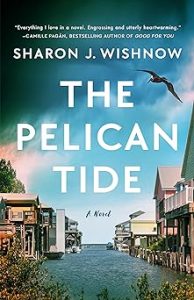 After disaster strikes, a Louisiana family and their community need to prove to each other and the world that their bond is thicker than the oil threatening their shores in Sharon J. Wishnow’s stunning debut novel.
After disaster strikes, a Louisiana family and their community need to prove to each other and the world that their bond is thicker than the oil threatening their shores in Sharon J. Wishnow’s stunning debut novel.
It’s taken Chef Josie Babineaux six months to reconcile the debts left from her husband Brian’s gambling along with her broken heart. But now with a promising tourist season heating up and a travel magazine declaring her the spice queen of the bayou, she may be able to save her family’s historic Cajun restaurant. Repairing her relationship with her daughter, Minnow, while hiding the true reason she left her husband is a bigger issue.
Just as the first tourists arrive, an explosion on an oil platform in the Gulf of Mexico shatters their fragile plans. With her island community at the epicenter of the oil spill, everything is endangered, including the restaurant’s beloved mascot―a brown pelican dear to the family’s heart.
Josie realizes her family needs more than financial recovery. Only reconciling her past and revealing the truth can clean up the guilt and hurt pooling under the surface. And maybe, with enough honesty, this family can find renewal.
BUY HERE
Category: How To and Tips








